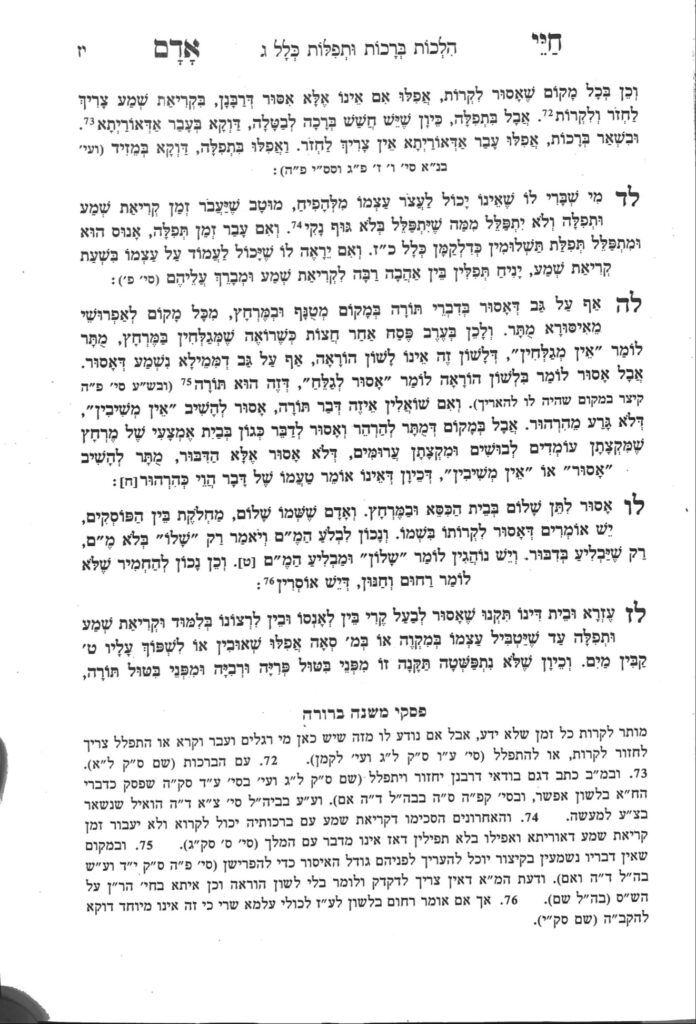We are continuing in siman 35, where the Chayei Adam discusses giving a psak halacha to prevent another from doing an aveirah in a place where it is assur to learn Torah. The Chayei Adam writes that one cannot prevent a person with language of psak, but should rather say “we do not do that”, or something similar, in a way that avoids language of issur or heter. Language of issur or heter is considered Torah.
The Mishnah Berurah brings other poskim, including the Magen Avraham, who hold that one may tell the person with the language of issur or heter, as long as they do not use language of psak. Thus, according to the Magen Avraham, one can say “you may not do that” but cannot say “halacha says you can not do that”. Such language does not make it clear that the reason for the issur is Torah halacha, so it is muttar even if it is stated as a directive. The Biur Halacha points out that the Ran in Maseches Shabbos writes this concept explicitly. The Mishnah Berurah paskens in accordance with the Magen Avraham.
The Chayei Adam continues, and says that if the person will not stop the aveirah unless one explains to them the halacha and why it is assur, it is muttar to do so.
The Mishnah Berurah quotes the Sefer HaChassidim, who writes that within the issurim related to relationships between men and women, we know there is an issur of histaklus, gazing at a woman, and hirhur, thinking inappropriately about a woman. If a person is in a place where it is assur to learn (e.g., bathroom), and they begin to have inappropriate thoughts, they should engage themselves in thoughts or words of Torah. The Rambam writes that inappropriate thoughts only develop within a heart which is empty of Torah. Normally, when one thinks inappropriate thoughts, they can employ this advice. However, in a place where it is assur to learn, one would think they could not employ this advice. The Sefer Hachassidim explains that, based on what we have just learned, one may think in learning if they are having hirhurim. If one is allowed to speak words of Torah to help prevent someone else from transgressing an issur, they can think words of Torah to prevent themselves from transgressing an issur as well.
Rabbi Reingold once heard a recording from the Klausenberger Rebbe, zt”l, where he said that if it were up to him, he would suggest that a person prepare thoughts of Torah purposefully in advance of going into a place where it is assur to learn, due to the challenges of the society in which we live. A person can be successful prophylactically by preparing thoughts beforehand. Although it does not appear to be halacha lemaaseh, it gives us insight into the concept of the Sefer Chassidim.
Summary
- If one is in a place where it is assur to recite divrei torah, and they see someone doing something assur, they can do hirhur to ensure they have the correct halacha, but cannot speak divrei torah. They can tell the person in a direct manner “do not do this”, but must avoid saying it is assur or issuing a psak.
- However, if the person will not stop the averiah unless the nature of the halacha is explained to them, one may speak in the language of assur, and even explain the halacha as is necessary.
- Similarly, if one needs to think words of Torah to avoid hirhurim in a place where it is assur to learn, they may do so, in order to avoid the issur of hirhur.



